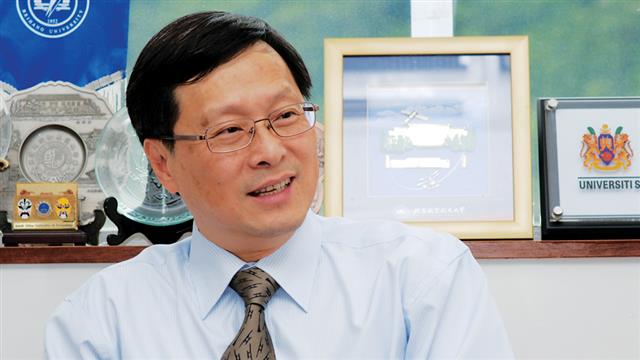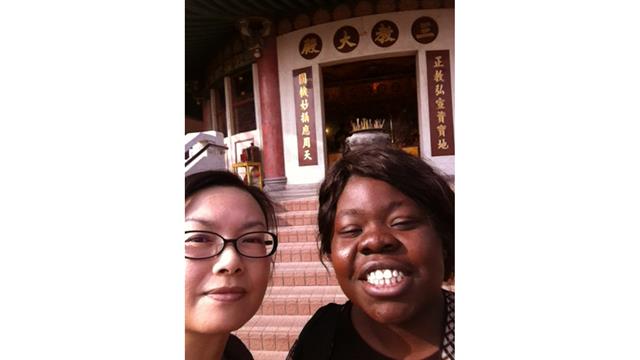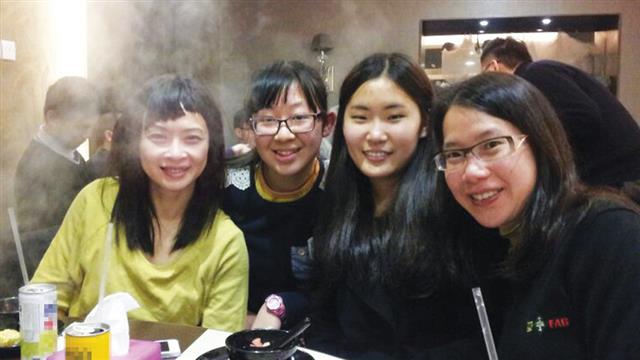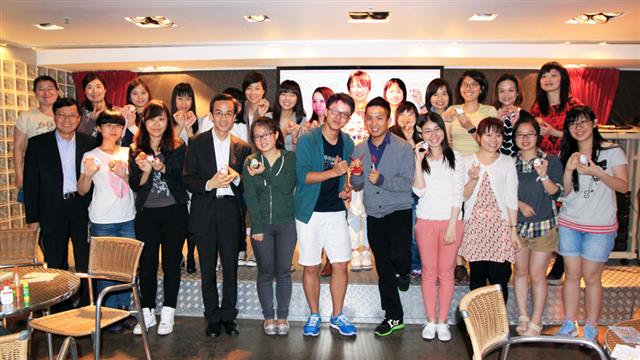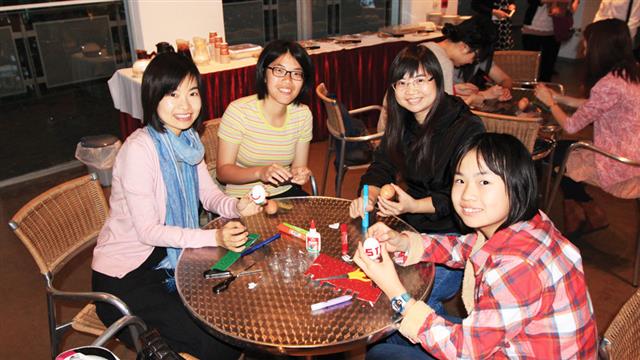The transition from secondary school to university is a huge one, in terms of the difference in teaching methods and the learning environment. For teenagers who go abroad to study, the challenges are even greater, especially if they are used to relying on their families. They could experience culture shock which makes adapting to their new environments a constant struggle.
The number of non-local undergraduate students studying at CUHK has been growing in recent years; they also come from a more diverse range of backgrounds. In 2013–14, over 400 non-local students were admitted to the University. According to Mr. Raymond Leung, Director of Students Affairs, the Office of Students Affairs has always provided information and support services to these students. However he hoped that his office could do more. 'Apart from responding to their needs, we should promote the spirit of cultural integration in the university community and help them, via informal channels, to adjust to a new lifestyle.'
The office launched the Host Family Programme in 2013 and invited colleagues and their kin to join as the 'host families'. Mr. Leung said the programme has been adapted to the local context so that the hosts are not required to provide lodging for their students. The families arrange a variety of cultural exchange activities, such as family meals, holiday celebrations, outings to places of interest for the participants. A total of 50 colleagues and 74 non-local students from mainland China, Macau, Malaysia, Nigeria, South Korea and Taiwan have taken part in the programme.
Cultural Exchange with Nigeria Student
Ms. Waie Pao of the Office of Academic Links (China) joined the programme as she wanted to give support to students studying away from their home countries. Waie recalled with fondness studying in France and living in a host family years ago, 'They did not only provide me with board and lodging, but all members of the family, old and young, made me feel warm. I had a very close relationship with them as we lived together. They gave me much encouragement during my study and this was totally different from hostel life.' Having benefited personally from such experience, Waie was inspired to share what she had with the non-local students of CUHK.
Waie took her student Nanret Senok from Nigeria to the Yuen Yuen Institute, a famous Taoist temple, and showed her Chinese culture and architecture. They also went to have Cantonese dim sum in a local restaurant. In return, Nanret shared with Waie some West African costumes that enabled Waie to learn more about her home country. Although Nanret was preoccupied with her studies and other activities, they kept up to date with each other's lives via e-mail. Waie hopes Nanret can feel the support from her Hong Kong 'family'.
Adaptation to the Local Lifestyle
The host family programme reminded Wendy Chan of the Information Technology Services Office of the time she studied in the UK and enjoyed the hospitality of a local family for several days. Through interaction with local people, Wendy learnt much more about British culture than she would have by reading alone. She shared an interesting episode. 'The host had to stay in hospital because of illness. When he was discharged, his wife gave him apple pie. I was astonished. The Chinese would prepare some kind of tonic for the patient.' Wendy's daughter is also studying in the UK. She realizes that having a host family can play an important role in improving the experiences of overseas students. Thus she was very eager to join the programme. She was paired with Zhao Yuntong from mainland China and Chan Man-tek from Macau.
Wendy thought the best way for non-local students to learn about local culture is by living life like a local. So instead of taking them to the famous sightseeing spots, she invited the two girls to go to church service with her, visit her office, have dinner at her home or hotpot with her family. Wendy also took them to the market to buy food and showed them how to prepare simple local dishes and desserts. She hoped these simple activities could help the girls adapt better to the local lifestyle.
Finding out More about Hong Kong Together
Ms. Pansy Lo of the Office of Academic Links (China) has made a lot of friends from mainland China and Taiwan because of her work. And she was happy to extent her hospitality to non-local students by joining the host family programme. She hosted Tan Ke-ying from Malaysia.
'Ke-ying is a very active and energetic young girl who loves hiking and has been to many local hiking trails that I've never visited.' Pansy found that Ke-ying enriched her own knowledge of Hong Kong.
As food holds an important place in local culture, Pansy and her niece always took Ke-ying to taste different local food from Shanghainese and Northern Chinese restaurants at hotels to Hong Kong-style egg waffles and clay-pot pudding in street stalls. Pansy also invited her sister and niece to join the Easter reunion with Ke-ying. For the occasion, Ke-ying made a birthday-themed Easter egg for Pansy's sister whose birthday is in April. Pansy really appreciates with what Ke-ying did for her family.
Having the support of a local family can help to shorten and smoothen the transition period of non-local students. The host families can build friendship with the youngsters and learn about their culture, and also learn to view their own city from a new angle.


